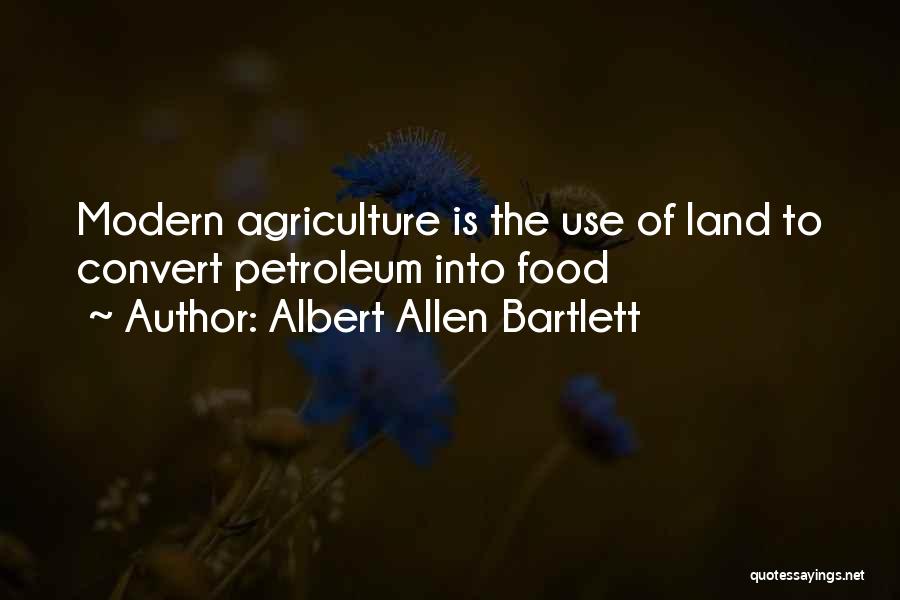Quotes & Sayings About Modern Agriculture
Enjoy reading and share 24 famous quotes about Modern Agriculture with everyone.
Top Modern Agriculture Quotes
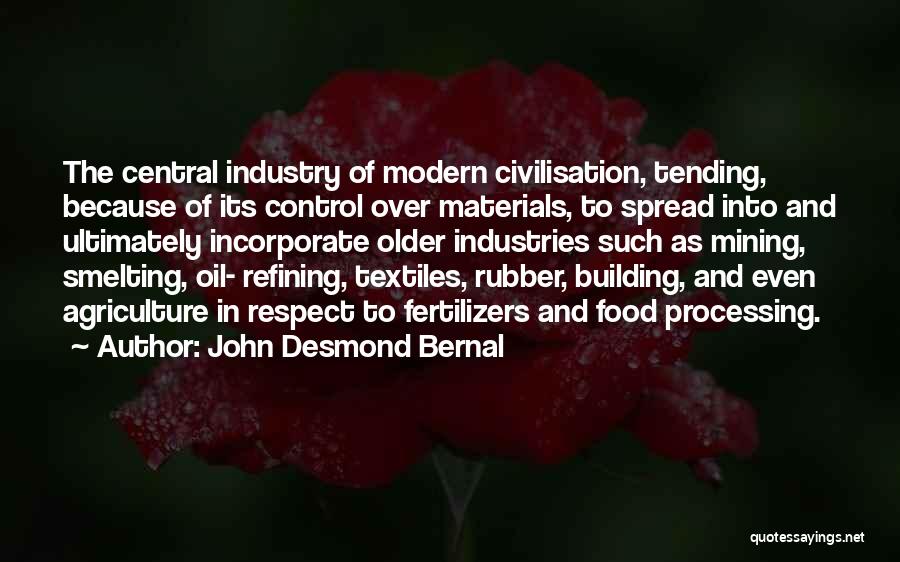
The central industry of modern civilisation, tending, because of its control over materials, to spread into and ultimately incorporate older industries such as mining, smelting, oil- refining, textiles, rubber, building, and even agriculture in respect to fertilizers and food processing. — John Desmond Bernal
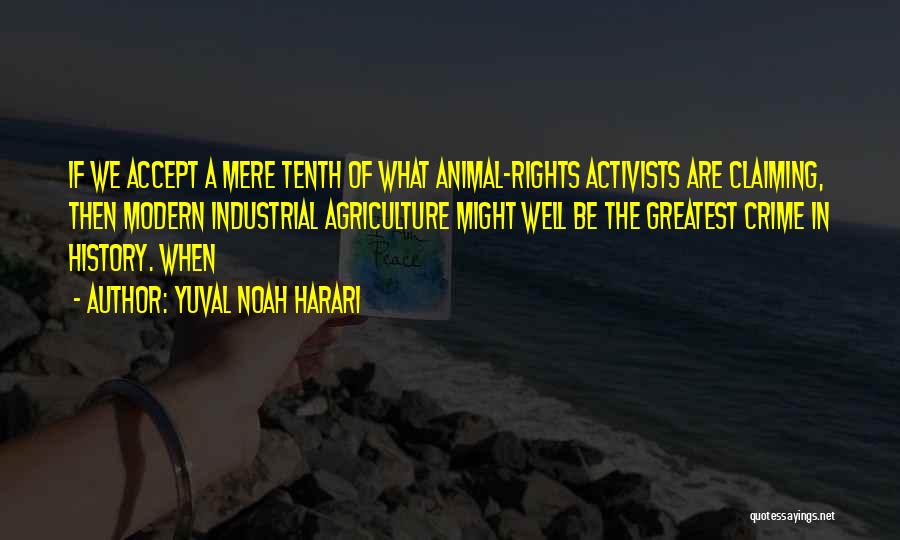
If we accept a mere tenth of what animal-rights activists are claiming, then modern industrial agriculture might well be the greatest crime in history. When — Yuval Noah Harari
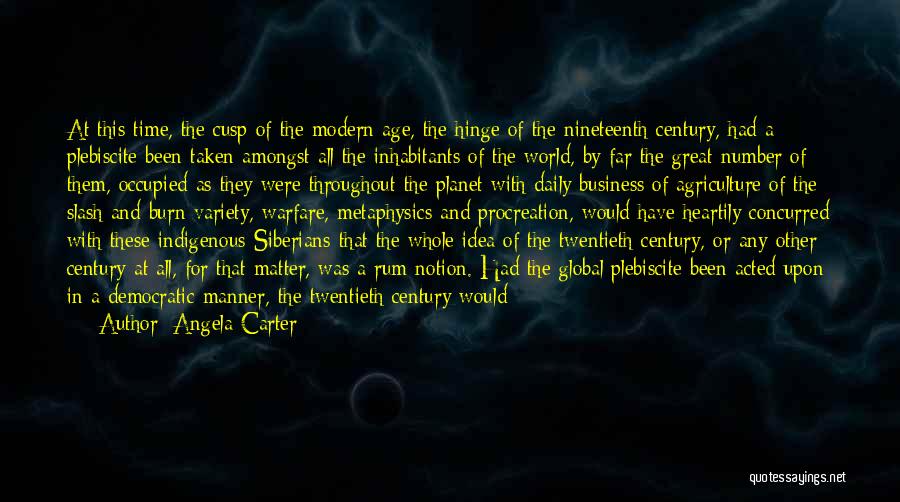
At this time, the cusp of the modern age, the hinge of the nineteenth century, had a plebiscite been taken amongst all the inhabitants of the world, by far the great number of them, occupied as they were throughout the planet with daily business of agriculture of the slash and burn variety, warfare, metaphysics and procreation, would have heartily concurred with these indigenous Siberians that the whole idea of the twentieth century, or any other century at all, for that matter, was a rum notion. Had the global plebiscite been acted upon in a democratic manner, the twentieth century would have forthwith ceased to exist, the entire system of dividing up years by one hundred would have been abandoned and time, by popular consent, would have stood still. — Angela Carter
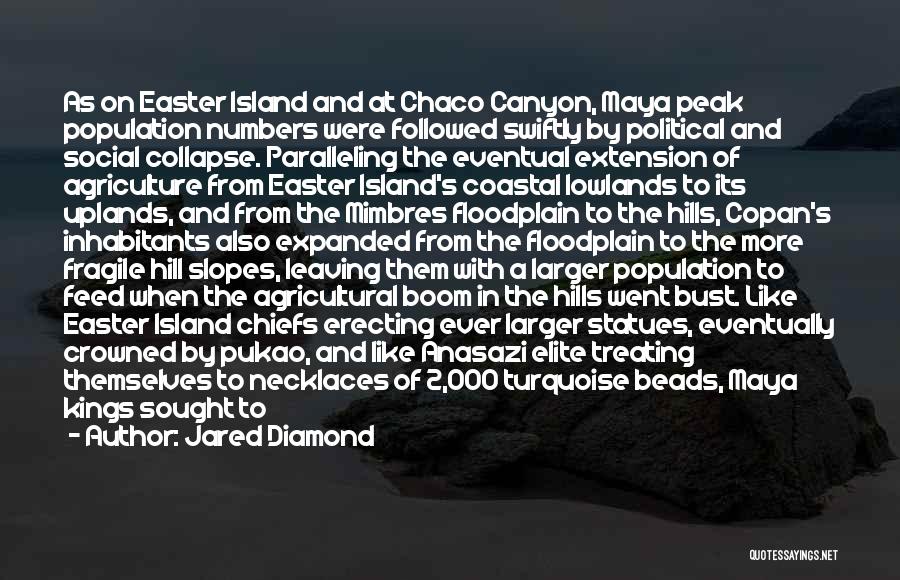
As on Easter Island and at Chaco Canyon, Maya peak population numbers were followed swiftly by political and social collapse. Paralleling the eventual extension of agriculture from Easter Island's coastal lowlands to its uplands, and from the Mimbres floodplain to the hills, Copan's inhabitants also expanded from the floodplain to the more fragile hill slopes, leaving them with a larger population to feed when the agricultural boom in the hills went bust. Like Easter Island chiefs erecting ever larger statues, eventually crowned by pukao, and like Anasazi elite treating themselves to necklaces of 2,000 turquoise beads, Maya kings sought to outdo each other with more and more impressive temples, covered with thicker and thicker plaster-reminiscent in turn of the extravagant conspicuous consumption by modern American CEOs. The passivity of Easter chiefs and Maya kings in the face of the real big threats to their societies completes our list of disquieting parallels. — Jared Diamond
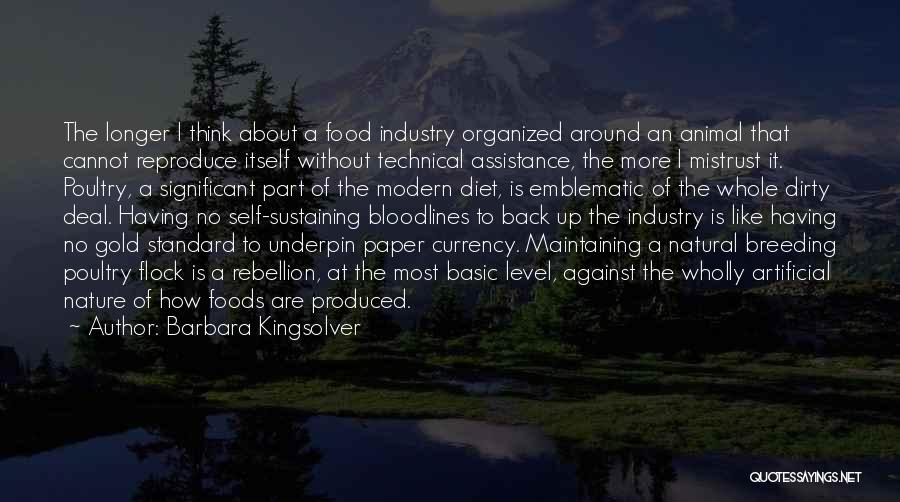
The longer I think about a food industry organized around an animal that cannot reproduce itself without technical assistance, the more I mistrust it. Poultry, a significant part of the modern diet, is emblematic of the whole dirty deal. Having no self-sustaining bloodlines to back up the industry is like having no gold standard to underpin paper currency. Maintaining a natural breeding poultry flock is a rebellion, at the most basic level, against the wholly artificial nature of how foods are produced. — Barbara Kingsolver
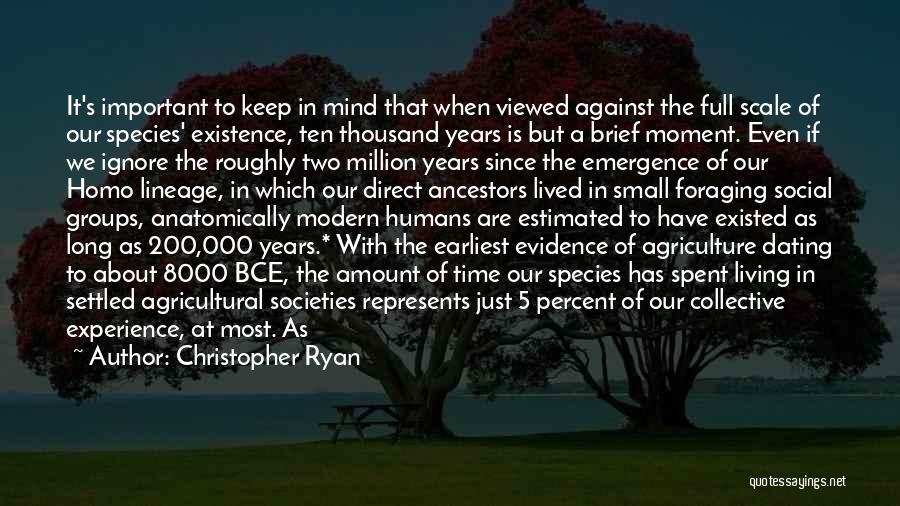
It's important to keep in mind that when viewed against the full scale of our species' existence, ten thousand years is but a brief moment. Even if we ignore the roughly two million years since the emergence of our Homo lineage, in which our direct ancestors lived in small foraging social groups, anatomically modern humans are estimated to have existed as long as 200,000 years.* With the earliest evidence of agriculture dating to about 8000 BCE, the amount of time our species has spent living in settled agricultural societies represents just 5 percent of our collective experience, at most. As recently as a few hundred years ago, most of the planet was still occupied by foragers. — Christopher Ryan
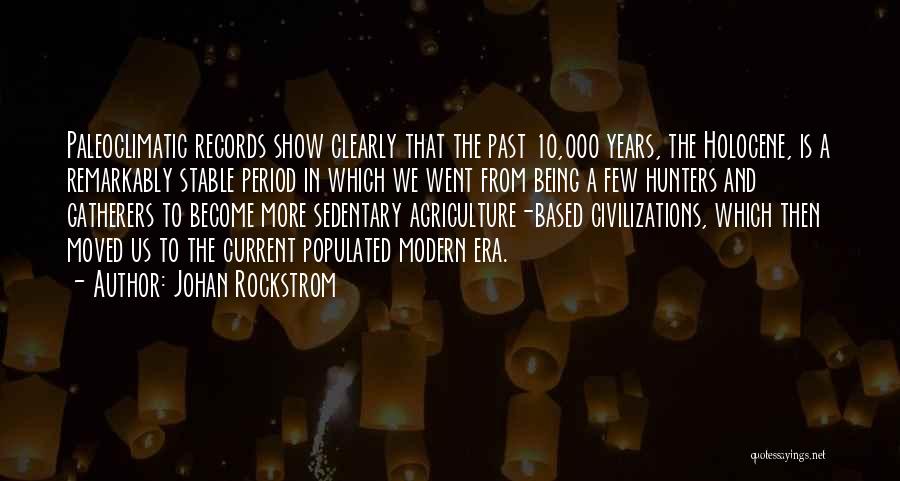
Paleoclimatic records show clearly that the past 10,000 years, the Holocene, is a remarkably stable period in which we went from being a few hunters and gatherers to become more sedentary agriculture-based civilizations, which then moved us to the current populated modern era. — Johan Rockstrom
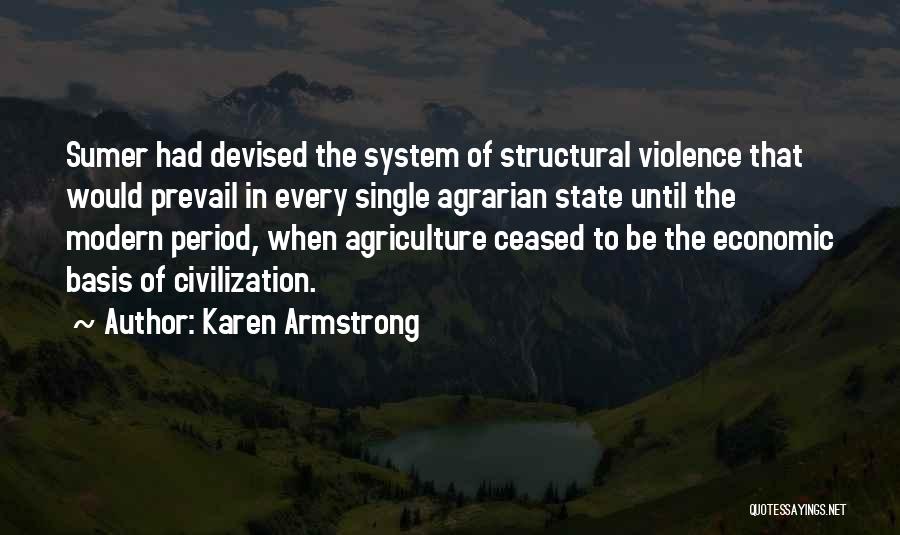
Sumer had devised the system of structural violence that would prevail in every single agrarian state until the modern period, when agriculture ceased to be the economic basis of civilization. — Karen Armstrong
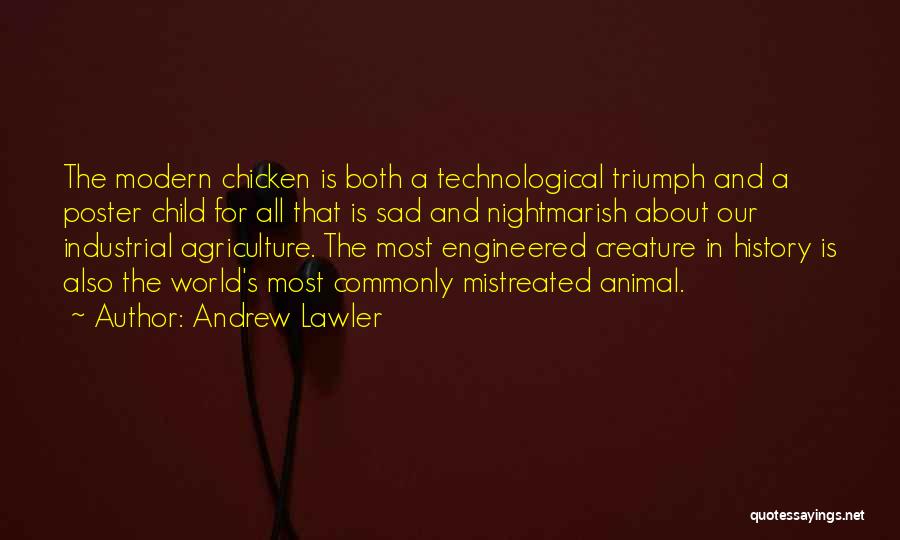
The modern chicken is both a technological triumph and a poster child for all that is sad and nightmarish about our industrial agriculture. The most engineered creature in history is also the world's most commonly mistreated animal. — Andrew Lawler
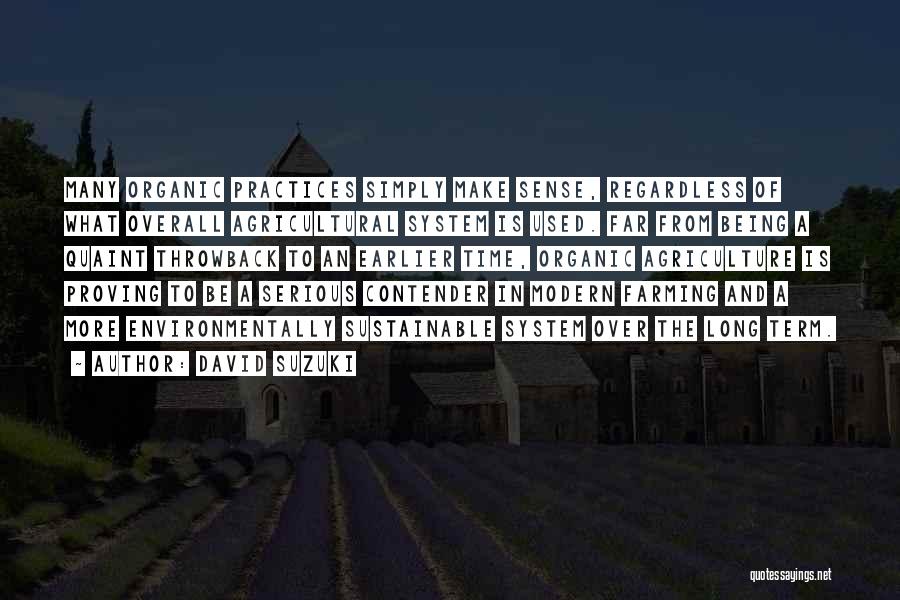
Many organic practices simply make sense, regardless of what overall agricultural system is used. Far from being a quaint throwback to an earlier time, organic agriculture is proving to be a serious contender in modern farming and a more environmentally sustainable system over the long term. — David Suzuki
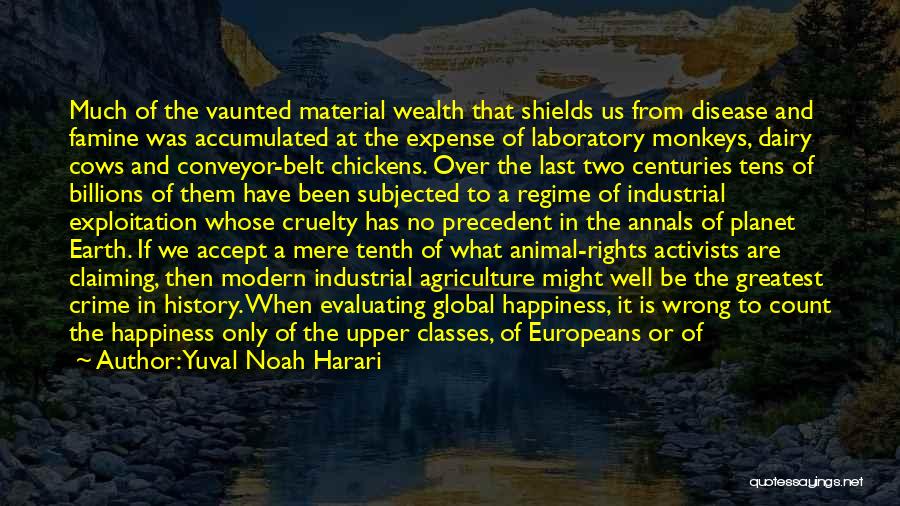
Much of the vaunted material wealth that shields us from disease and famine was accumulated at the expense of laboratory monkeys, dairy cows and conveyor-belt chickens. Over the last two centuries tens of billions of them have been subjected to a regime of industrial exploitation whose cruelty has no precedent in the annals of planet Earth. If we accept a mere tenth of what animal-rights activists are claiming, then modern industrial agriculture might well be the greatest crime in history. When evaluating global happiness, it is wrong to count the happiness only of the upper classes, of Europeans or of men. Perhaps it is also wrong to consider only the happiness of humans. — Yuval Noah Harari
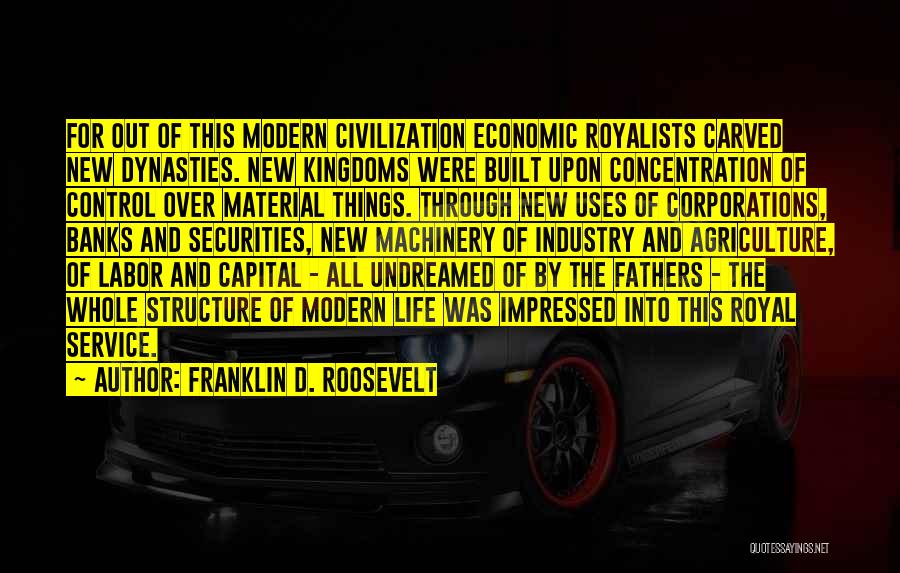
For out of this modern civilization economic royalists carved new dynasties. New kingdoms were built upon concentration of control over material things. Through new uses of corporations, banks and securities, new machinery of industry and agriculture, of labor and capital - all undreamed of by the Fathers - the whole structure of modern life was impressed into this royal service. — Franklin D. Roosevelt
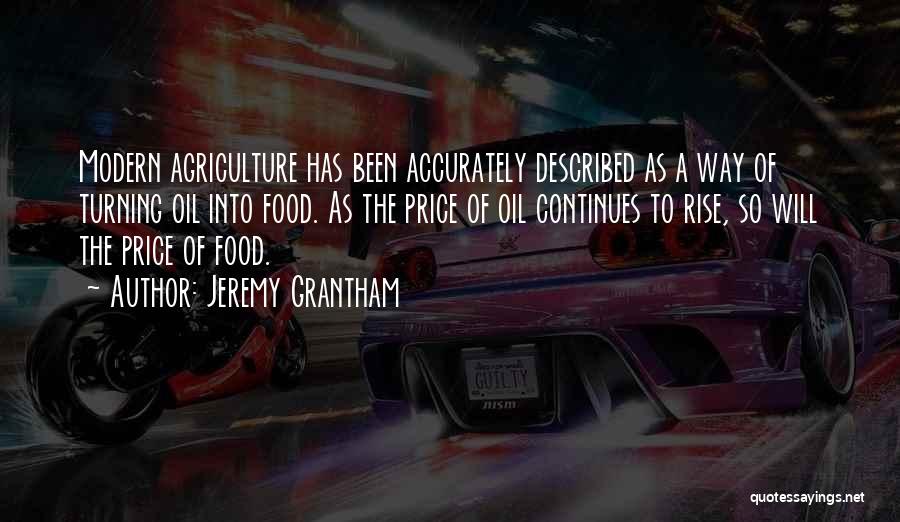
Modern agriculture has been accurately described as a way of turning oil into food. As the price of oil continues to rise, so will the price of food. — Jeremy Grantham
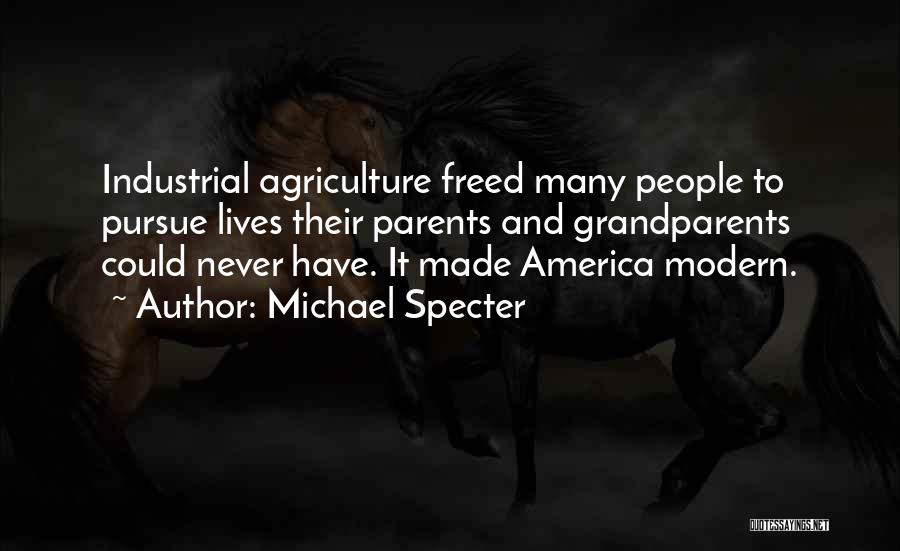
Industrial agriculture freed many people to pursue lives their parents and grandparents could never have. It made America modern. — Michael Specter
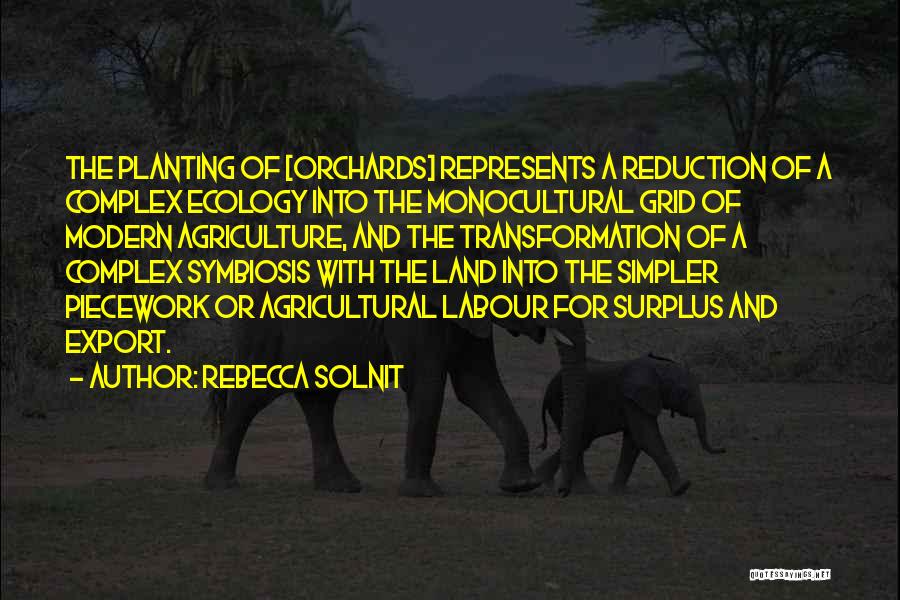
The planting of [orchards] represents a reduction of a complex ecology into the monocultural grid of modern agriculture, and the transformation of a complex symbiosis with the land into the simpler piecework or agricultural labour for surplus and export. — Rebecca Solnit
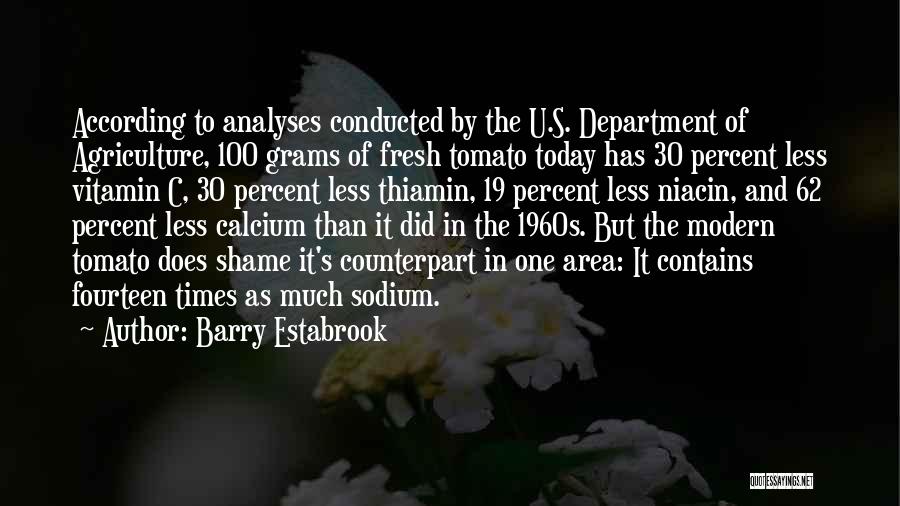
According to analyses conducted by the U.S. Department of Agriculture, 100 grams of fresh tomato today has 30 percent less vitamin C, 30 percent less thiamin, 19 percent less niacin, and 62 percent less calcium than it did in the 1960s. But the modern tomato does shame it's counterpart in one area: It contains fourteen times as much sodium. — Barry Estabrook
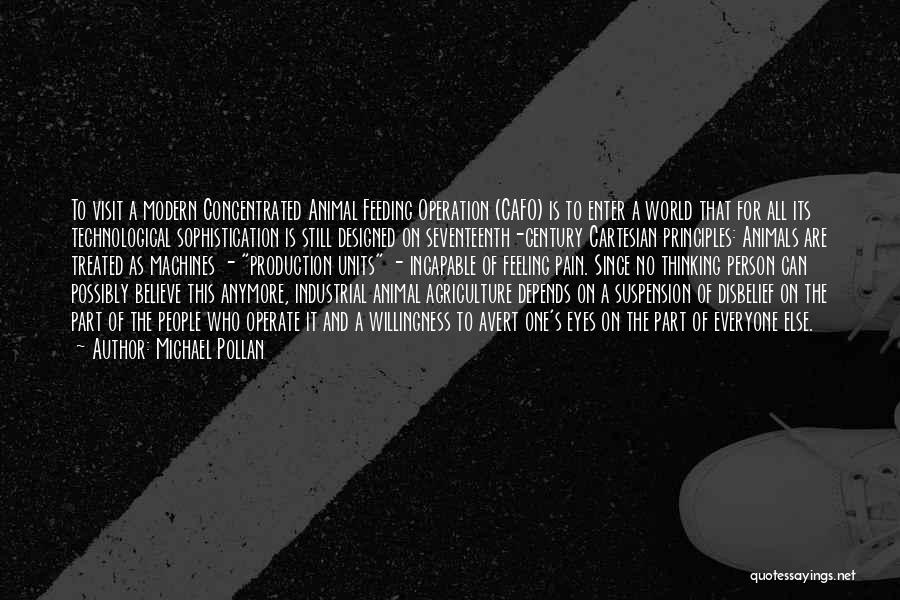
To visit a modern Concentrated Animal Feeding Operation (CAFO) is to enter a world that for all its technological sophistication is still designed on seventeenth-century Cartesian principles: Animals are treated as machines - "production units" - incapable of feeling pain. Since no thinking person can possibly believe this anymore, industrial animal agriculture depends on a suspension of disbelief on the part of the people who operate it and a willingness to avert one's eyes on the part of everyone else. — Michael Pollan
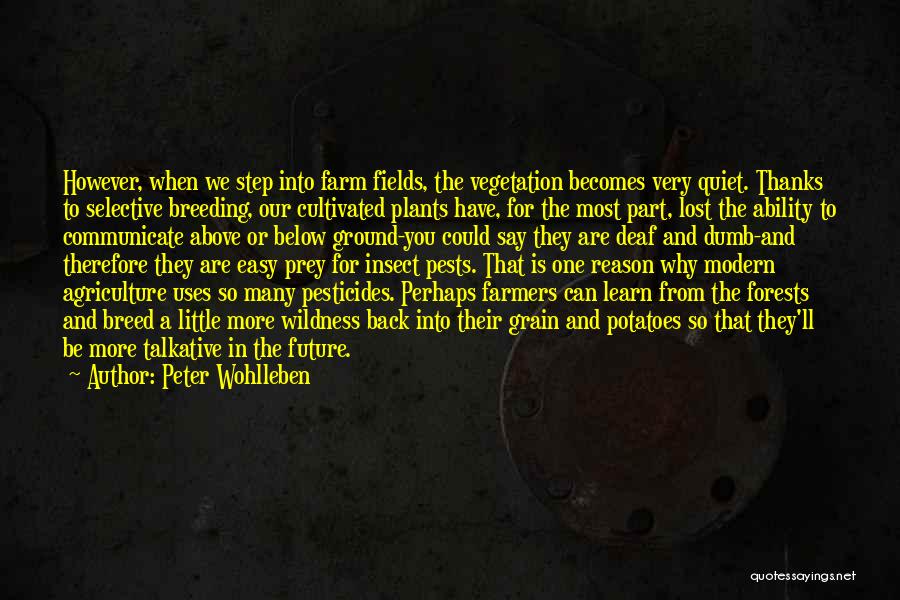
However, when we step into farm fields, the vegetation becomes very quiet. Thanks to selective breeding, our cultivated plants have, for the most part, lost the ability to communicate above or below ground-you could say they are deaf and dumb-and therefore they are easy prey for insect pests. That is one reason why modern agriculture uses so many pesticides. Perhaps farmers can learn from the forests and breed a little more wildness back into their grain and potatoes so that they'll be more talkative in the future. — Peter Wohlleben
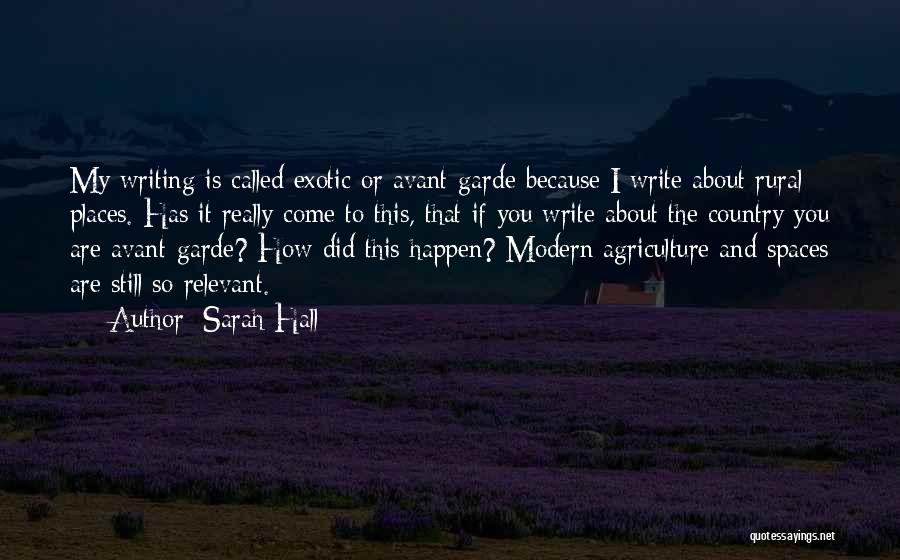
My writing is called exotic or avant-garde because I write about rural places. Has it really come to this, that if you write about the country you are avant-garde? How did this happen? Modern agriculture and spaces are still so relevant. — Sarah Hall
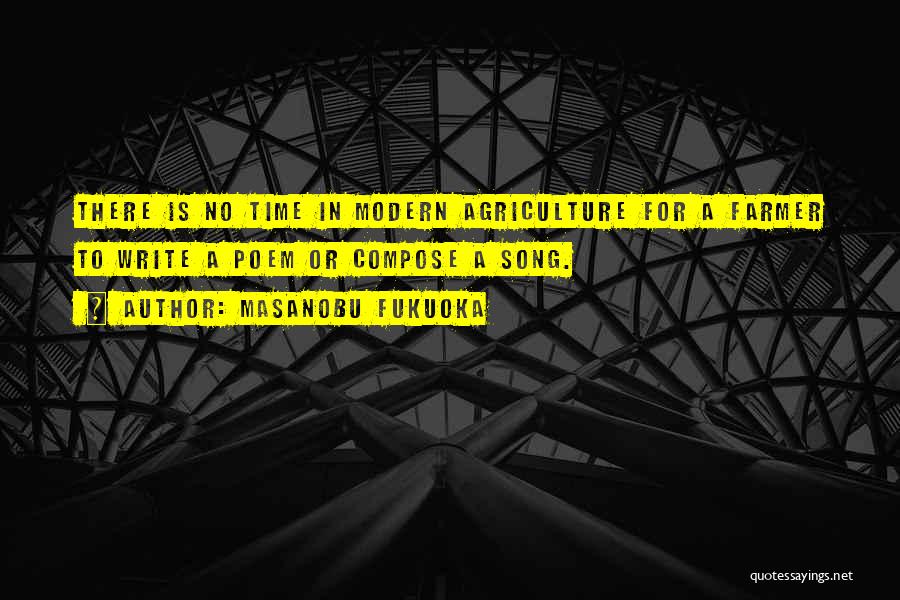
There is no time in modern agriculture for a farmer to write a poem or compose a song. — Masanobu Fukuoka
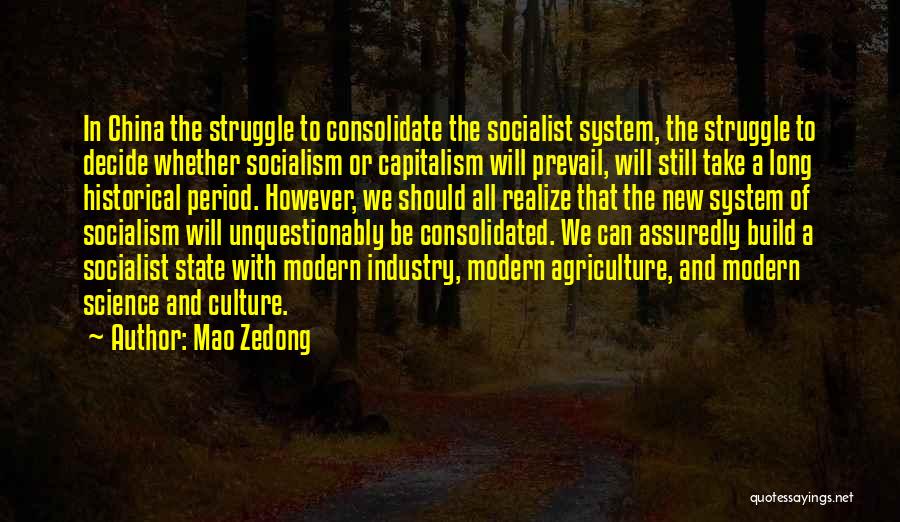
In China the struggle to consolidate the socialist system, the struggle to decide whether socialism or capitalism will prevail, will still take a long historical period. However, we should all realize that the new system of socialism will unquestionably be consolidated. We can assuredly build a socialist state with modern industry, modern agriculture, and modern science and culture. — Mao Zedong
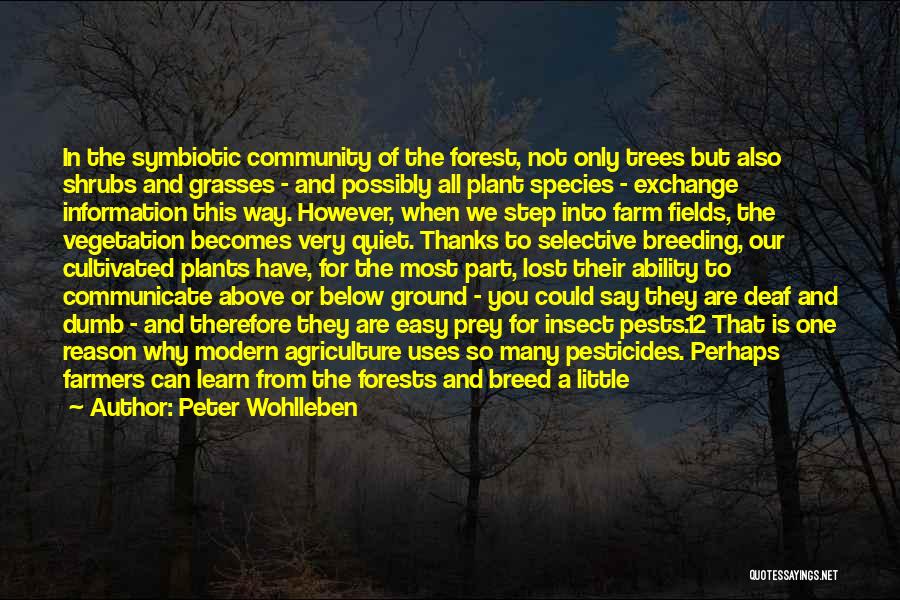
In the symbiotic community of the forest, not only trees but also shrubs and grasses - and possibly all plant species - exchange information this way. However, when we step into farm fields, the vegetation becomes very quiet. Thanks to selective breeding, our cultivated plants have, for the most part, lost their ability to communicate above or below ground - you could say they are deaf and dumb - and therefore they are easy prey for insect pests.12 That is one reason why modern agriculture uses so many pesticides. Perhaps farmers can learn from the forests and breed a little more wildness back into their grain and potatoes so that they'll be more talkative in the future. Communication — Peter Wohlleben
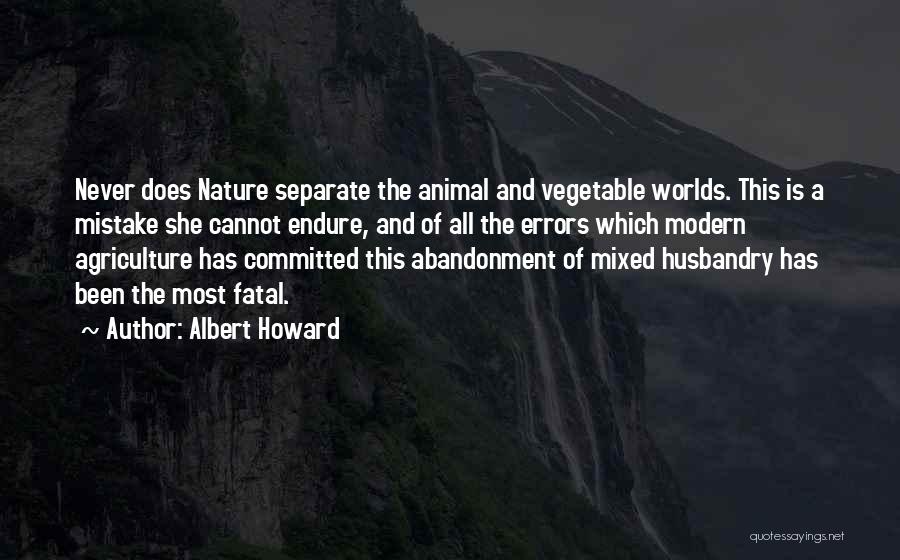
Never does Nature separate the animal and vegetable worlds. This is a mistake she cannot endure, and of all the errors which modern agriculture has committed this abandonment of mixed husbandry has been the most fatal. — Albert Howard






